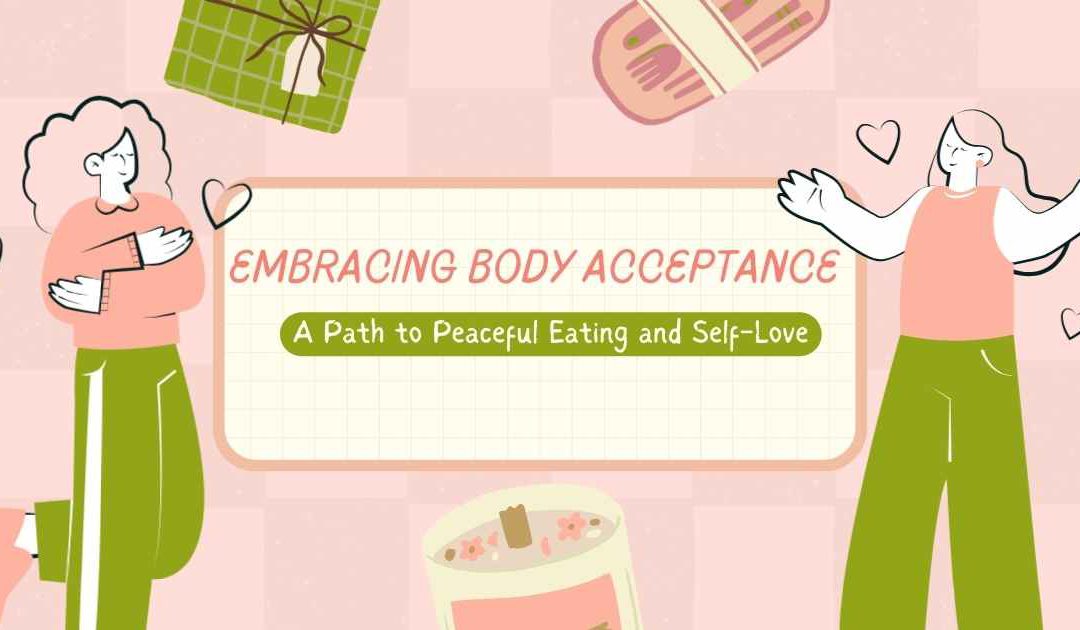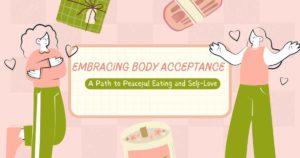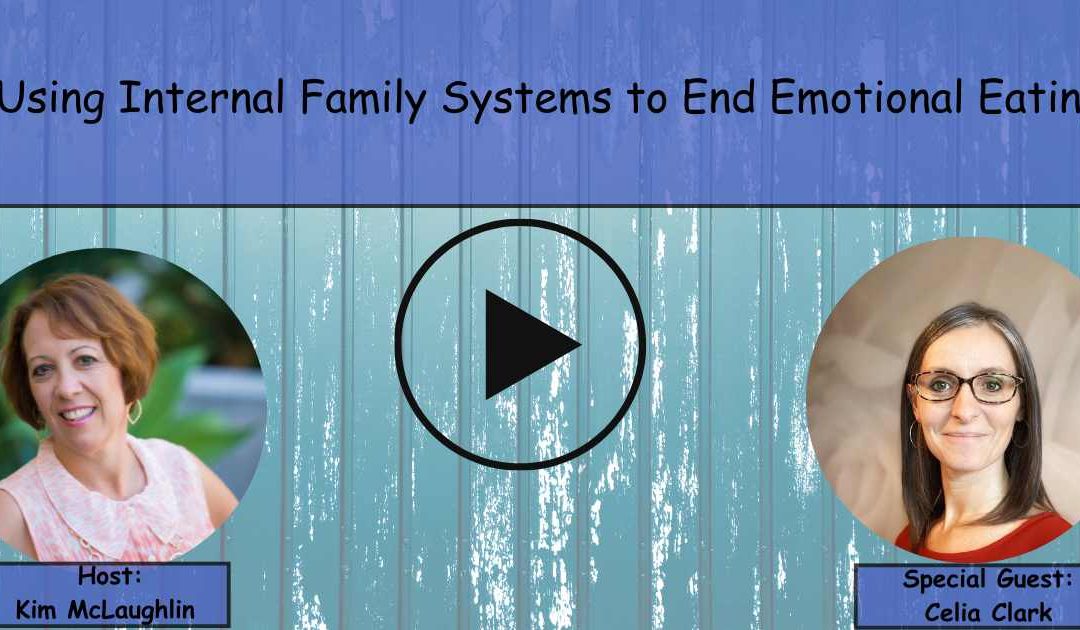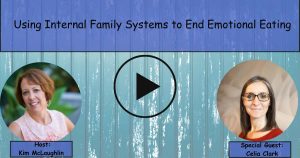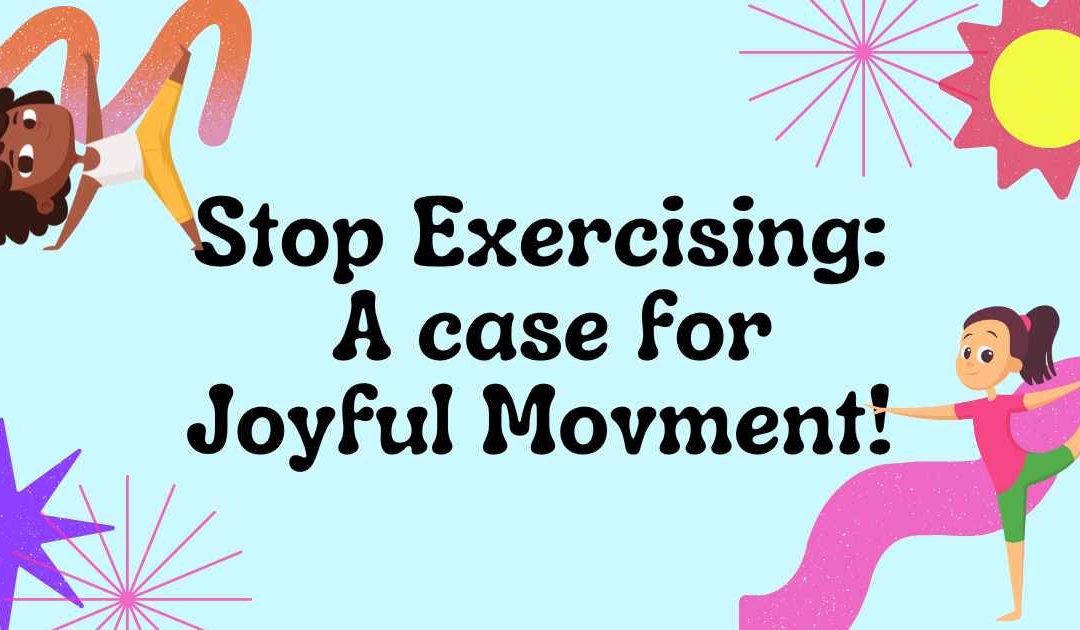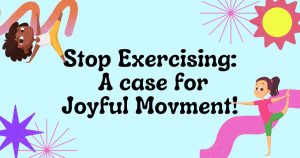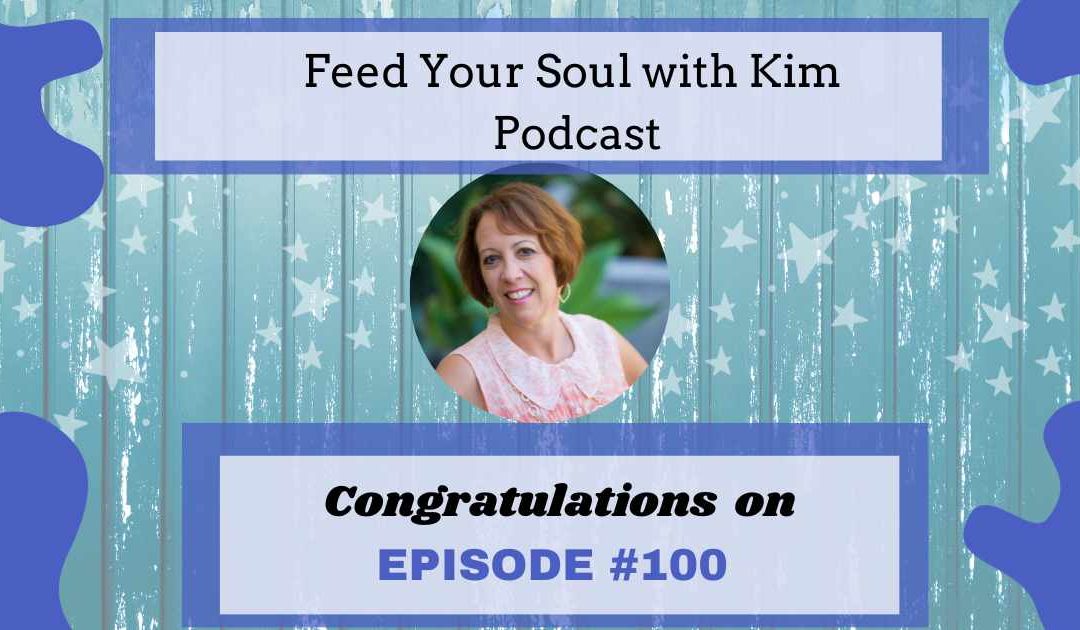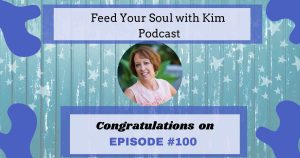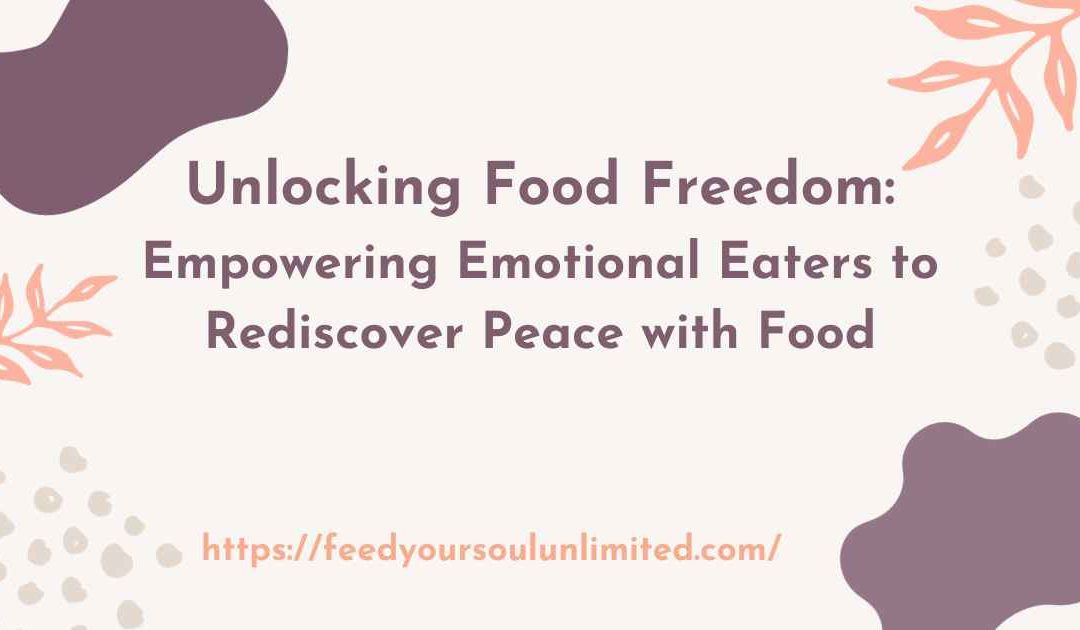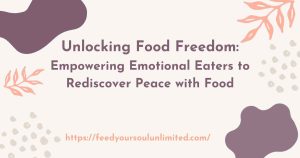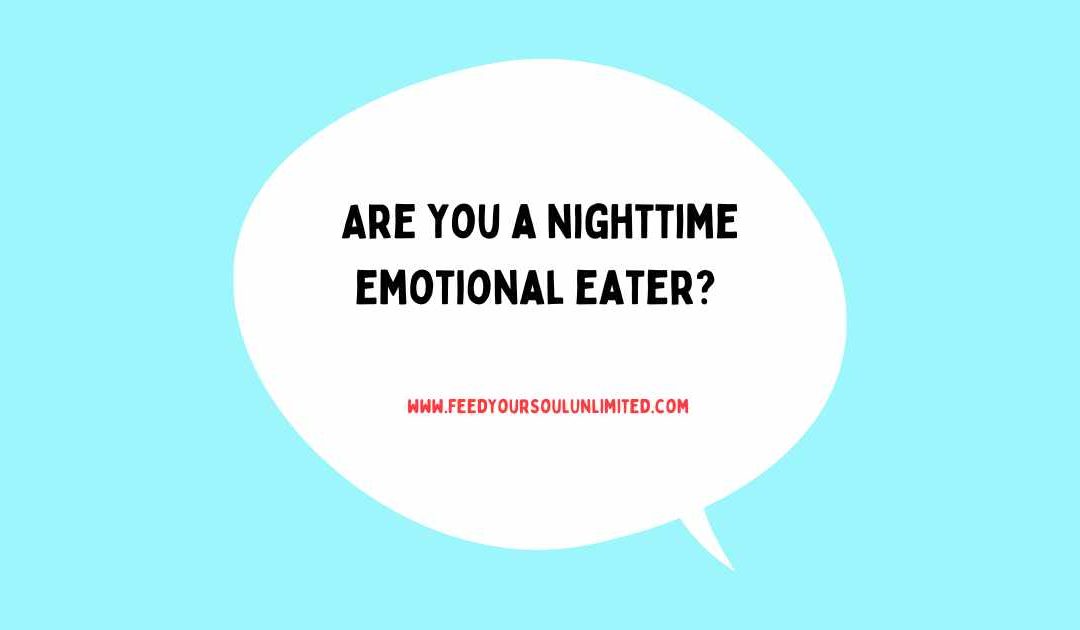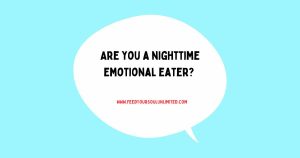
by KimMcLaughlin | Aug 9, 2024 | Emotional Eating





Do you find yourself constantly judging your body? Are you tired of feeling frustrated and overwhelmed by societal expectations?
You are not alone.
Many women struggle with body judgment, but the good news is that it doesn’t have to be this way. Let’s explore some strategies to help you end body judgment and make peace with your body.
What is Body Judgment?
Body judgment is a learned behavior that stems from societal standards of beauty and perfection. From a young age, we are bombarded with messages about what our bodies should look like, leading us to internalize these ideals and constantly compare ourselves to them. This constant comparison fuels body judgment and creates a negative cycle that can be difficult to break.
The impact of Body Judgment is negative.
Body judgment takes a toll on you. Some ways body judgment shows up is:
- Mental health (depression, anxiety)
- Body (yo-yo dieting)
- Self-esteem (feeling bad about yourself)
- Overall well-being
Constantly criticizing and condemning your body leads to low self-esteem, anxiety, and even disordered eating patterns. It hinders your ability to fully be present in your life and prevents you from embracing your true self. It’s time to break free from this destructive mindset.
You must shift your mindset about body judgment.
- Challenge societal standards. Recognize that beauty comes in all shapes and sizes. Begin questioning the unrealistic ideals presented by the media and challenge their influence on your perception of yourself.
- Practice self-compassion: Treat yourself with kindness and understanding. Remember that nobody is perfect, and it’s okay (and normal!) to have imperfections.
- Focus on what your body can do: Instead of fixating on appearance, shift your attention towards what your body can achieve. Celebrate its strength, resilience, and the amazing things it allows you to do. Even if you have some limited physical abilities, I challenge you to see what your body can do.
Cultivate a Positive Body Image.
First, surround yourself with positive influences. Follow social media accounts that promote body positivity and diversity. Listening to uplifting messages can help reshape your perception of bodies and beauty.
Second, engage in self-care activities. Take care of your body by engaging in activities that make you feel good. This could include movement, getting enough sleep, drinking more water, and nourishing yourself with nutritious foods.
Third, practice gratitude. Shift your focus from what you dislike about your body to what you appreciate about it. Each day, write down three things you are grateful for about your body.
Embrace Intuitive Eating as a form of Body Positivity.
Intuitive eating is a practice that involves listening to your body’s cues and honoring its needs. By adopting this approach, you can develop a more functional relationship with food and ultimately end the cycle of dieting and restriction.
- Reject diet culture:Recognize that diets are unsustainable and can lead to disordered eating patterns. Instead, focus on nourishing your body with foods that make you feel good.
- Tune into hunger and fullness cues:Pay attention to your body’s signals of hunger and fullness. Eat when you’re hungry and stop when you’re satisfied, allowing yourself to enjoy a variety of foods without guilt or judgment.
- Find joy in movement:Engage in physical activity that brings you joy rather than exercising to change your appearance. Choose activities that make you feel good both mentally and physically.
Seek assistance to move out of Body Judgment.
Ending body judgment is not an overnight process, and it can be challenging to do it alone. Consider seeking support from professionals who specialize in intuitive eating, positive psychology, or mental health. They can provide guidance and tools tailored to your specific needs.
In the end, it is time to break free from the vicious cycle of body judgment. By shifting our perspective, cultivating a positive body image, embracing intuitive eating, and seeking support when needed, we can make peace with our bodies and live a life free from constant criticism. Remember, you deserve love and acceptance exactly as you are. Embrace your uniqueness and let go of the judgment. You deserve to feel confident and at peace with your body.
Kim McLaughlin, MA is a Psychotherapist, Speaker, Author, and Coach who specializes in working with people who suffer from binge eating and emotional eating. She is a Certified Intuitive Eating Counselor. She is the author of the best-selling book Feed Your Soul Nourish Your Life! A Six Step System to Peace with Food and the Amazon #1 Best Selling book Discovery Your Inspiration.
You can find Kim on her podcast Feed Your Soul with Kim and you can find it on all podcast platforms.
Wondering if you are an emotional eater? Sign up for the free Am I an Emotional Eater Quiz.

by KimMcLaughlin | May 7, 2024 | Emotional Eating





I had the pleasure of interviewing a special guest, Celia Clark, on the Feed Your Soul with Kim podcast!
Celia Clark is a food and body image specialist from Scotland. Celia brings a fresh perspective to our discussion by introducing the concept of Internal Family Systems (IFS) and its profound impact on our relationship with food and nourishment.
Understanding Internal Family Systems:
Internal Family Systems (IFS) is a therapeutic model that recognizes that we are made up of different parts, each with its own intentions and desires.
In the context of our relationship with food, these parts can manifest as:
- Urges to restrict food.
- Internal drive to binge on food.
- Engage in other behaviors that distress us around food or not around food.
Unlike traditional approaches that demonize these behaviors (parts), IFS treats them as solutions to unmet needs.
Celia Clark shares her personal experience, highlighting the positive intentions behind these parts. For instance, the part focused on restriction seeks to keep us physically small to avoid judgment and shame.
The part driving binge eating attempts to meet unmet needs for connection, comfort, and escape.
By understanding and connecting with these parts, we can build safety and trust within ourselves, healing the shame-based wounds that drive our challenges with nourishment.
Recognizing the Impact of overeating on Body Image
Body image is often a significant factor in our relationship with food and ourselves. Celia emphasizes that body image struggles are driven by specific parts within us. By recognizing these parts, we can explore their intentions and begin to cultivate self-compassion.
In Internal Family Systems we are asked to get curious about the intention of the part.
- What is this part trying to communicate about my body?
- What is this part struggling with?
- Is there something important I need to know?
Cultivating Nourishment Beyond Food
Nourishment extends far beyond what we eat. It encompasses how we care for ourselves in all aspects of life. Celia highlights the importance of being open to both receiving and offering nourishment.
Physical nourishment in terms of paying attention to our physical needs is critical:
- Rest: be VERY mindful of your body’s need to rest.
- Movement by engaging in types of movement celebrate you.
- Clothing that reflects your body’s needs (i.e. fits well).
- Nourishing foods
Emotional and Social nourishment is so valuable:
- Increase self-worth.
- Expressing needs clearly.
- Practice healthy boundaries.
- Soul satisfying relationships.
Embracing Curiosity and Validation
Curiosity is a crucial first step in the IFS process. By getting curious about our urges and behaviors, we can begin to understand the underlying needs and intentions of our parts.
Celia suggests journaling and self-reflection as tools to explore these aspects of ourselves. Validation plays a vital role in this process as well. By validating our experiences and emotions, we create a compassionate space for healing and growth.
Becoming the Internal Loving Parent
As we engage with our parts, it is essential to adopt the role of the internal loving parent. This means offering ourselves compassion, understanding, and support. Just as we would nurture and care for a young child, we can provide the same kind of love and care to our parts. By developing this nurturing relationship, we can meet the needs of our parts and alleviate the behaviors that no longer serve us.
The Transformative Power of Internal Family Systems
Internal Family Systems offers a radical shift in how we approach our relationship with food and ourselves. By focusing on the intentions and needs of our parts, rather than external factors like calories or body size, we can create a more compassionate and healing environment. This approach empowers us to address the root causes of our challenges with nourishment, leading to lasting change and a healthier, more holistic relationship with food.
Lastly, as we cultivate curiosity, validation, and self-compassion, we create a space for healing and growth. Internal Family Systems offers a powerful framework for transforming our relationship with food and nourishing our souls, empowering us to live a life of self-acceptance and well-being.
Celia Clark and Internal Family Systems:
If you resonate with the concepts discussed in this podcast episode, there are several ways you can explore Internal Family Systems further.
Celia Clark offers one-on-one sessions, group work, and online courses to support individuals on their healing journey. You can find more information on her website, including free resources to dive deeper into this transformative approach. https://www.celiaclark.online/
 Kim McLaughlin, MA is a Psychotherapist, Speaker, Author, and Coach who specializes in working with people who suffer from binge eating and emotional eating. She is a Certified Intuitive Eating Counselor.
Kim McLaughlin, MA is a Psychotherapist, Speaker, Author, and Coach who specializes in working with people who suffer from binge eating and emotional eating. She is a Certified Intuitive Eating Counselor.
She is the author of the best-selling book Feed Your Soul Nourish Your Life! A Six Step System to Peace with Food and the Amazon #1 Best Selling book Discovery Your Inspiration.
You can find Kim on her podcast Feed Your Soul with Kim and you can find it on all podcast platforms.
Wondering if you are an emotional eater? Sign up for the free Am I an Emotional Eater Quiz.

by KimMcLaughlin | Mar 5, 2024 | Emotional Eating, Movement





Stop exercising!!!
There I said it. I think exercising is ridiculous.
My clients often tell me they, too, do not want to exercise. They often ask me why they do not want to exercise. They know it is “good” for them, but they are unmotivated.
The people I talk to are motivated to exercise when they start a diet. Once they stop losing weight and stop the diet, then the exercise stops.
Aren’t we all supposed to want to exercise?
Merriam-Webster says physical exercise is:
- The regular or repeated use of a faculty or bodily organ.
- Bodily exertion for the sake of developing and maintaining physical fitness.
I have always thought exercise is something that I am supposed to want to do. I am supposed to want to be “physically fit,” whatever that might mean.
I, and many of my clients, do not resonate with the idea of exercise.
There are some powerful reasons not to want to exercise:
- Exercising is connected to the dieting cycle of restrict, binge, and shame.
- It can be hard and uncomfortable. Anyone who’s heard the term, “no pain, no gain” could agree.
- You sweat A LOT, which can lead to embarrassment about your size.
- Exercise can bring back the feelings from younger years of being shamed in P.E. class.
- Clothes don’t fit right or do not support you correctly.
- Your body is exposed through tight clothes. Gyms have LOTS of mirrors.
- The ongoing judgment of yourself not being able to perform a physical task.
- There is mental connection between exercise and dieting.
The list of why we do not exercise is long. When we have a history of eating disorders and disordered eating, there is plenty of baggage with exercise.
When my clients ask, why should I exercise? I respond you shouldn’t exercise.
Shocking right?
Even though exercise is loaded with baggage, we are in bodies and need to engage in movement.
Intuitive Eating calls it “joyful movement.”
We are meant to move our bodies in the way that works best for each of us. Everyone has a different level of capacity and ability.
Do what movement YOU can do.
We know from studies and experience that movement has many positive benefits:
- Can help decrease depressive symptoms. Movement can get us to increase the endorphins our bodies need to feel better. Note: movement is not the cure for depression, but it can be a helpful part of your treatment. If you are experiencing depression, please seek out a licensed mental health professional.
- Movement can help you sleep better. Being physically tired can be helpful.
- My esthetician says my skin looks better since I have been engaging in more movement.
- Lastly, we are in bodies that are made to be in motion and you get to define what that motion looks like.
What kind of movement should you engage in?
Here are some questions to help you figure it out:
First ask yourself, when I was younger what did I like to do?
- What did you like to do 10, 20, 30 years ago.
- What did you do as a child?
- Where is there passion for movement you had years earlier?
I liked to swim when I was younger and ride my bike.
Second ask yourself, which kind of movement brings me joy?
I often ask myself what kind of movement will bring me joy today?
This has led me to try many activities that I would not have normally tried like:
- Yoga
- Zumba
- Stand Up Paddle Board
- Hiking
As the years have gone by my answer to what movement brings me joy has changed.
I had been attending a gym for years and I was feeling bored there, and my intuitive voice said I need yoga. Now I have been going to a yoga studio for a few months, my joy has increased exponentially.
Third, determine what is fun to you NOW?
Ask yourself regularly, what would be a fun activity? I have been amazed how much I will step out of my movement comfort zone when I embrace what is fun. I will swing at the park, dance, and try aerial yoga (this was scary, but fun).
Honestly, having a history of food issues has led can lead you to reject exercise for many different reasons.
I encourage you to reject exercise, too.
This does not mean I am encouraging you to sit on the couch all day.
Lastly, embrace movement in a way that works for you.
For me, some days it is extra sweaty hiking, other days it is calm yin yoga.
Movement is critical to our body’s wellbeing. Disconnecting the movement from dieting is critical to enjoyment and it leads us to want to do it some more.
Be sure to get clothes and equipment that fit correctly and support you in all the right ways.
In the end, focus on engaging in joyful movement. Look at what you can do that is fun and be active. It is an opportunity to reconnect with your body in a way that is pleasing to you.
 Kim McLaughlin, MA is a Psychotherapist, Speaker, Author, and Coach who specializes in working with people who suffer from binge eating and emotional eating. She is a Certified Intuitive Eating Counselor. She is the author of the best-selling book Feed Your Soul Nourish Your Life! A Six Step System to Peace with Food and the Amazon #1 Best Selling book Discovery Your Inspiration.
Kim McLaughlin, MA is a Psychotherapist, Speaker, Author, and Coach who specializes in working with people who suffer from binge eating and emotional eating. She is a Certified Intuitive Eating Counselor. She is the author of the best-selling book Feed Your Soul Nourish Your Life! A Six Step System to Peace with Food and the Amazon #1 Best Selling book Discovery Your Inspiration.
You can find Kim on her podcast Feed Your Soul with Kim and you can find it on all podcast platforms.
Wondering if you are an emotional eater? Sign up for the free Am I an Emotional Eater Quiz.

by KimMcLaughlin | Nov 7, 2023 | Emotional Eating





In honor of the 100th episode of the Feed Your Soul with Kim Podcast, we asked our community (all of you) to submit your questions. Let’s see what you all want to know.
1) What are your thoughts on intermittent fasting?
This question is very timely with the rise of intermittent fasting.
These are two different approaches to eating.
First, intuitive eating is all about tuning in to your body’s natural signals and cultivating a healthy relationship with food.
Intuitive eating encourages you to listen to your hunger and fullness cues, honor your cravings, and find pleasure in eating.
It’s a mindful and flexible approach that emphasizes self-compassion and body acceptance.
On the other hand, intermittent fasting involves cycling between periods of eating and fasting. This method has gained popularity for its reported potential benefits. However, it’s important to examine intermittent fasting through an intuitive eating lens to understand its compatibility with this mindset.
From an intuitive eating perspective, it’s crucial to consider the underlying motivations behind utilizing intermittent fasting.
- Are you doing it to listen to your body’s needs?
- To feel more connected to your hunger and fullness signals?
- Or are you using it as a tool for restriction or weight control?
The problem with intermittent fasting is it requires you eat during a certain time block, say 8 hours during the day and then not eat for 16 hours.
Some individuals may naturally gravitate to a time-restricted eating pattern, based on their hunger/fullness.
Intuitive eating promotes individualization and flexibility.
You are encouraged to trust your body’s wisdom rather than adhering strictly to external rules or prescribed eating patterns.
I ask my clients to consider the questions:
- Does this feel like a diet?
- Are you restricting food?
- Do you eat when you are hungry?
An action step is to take a deep breath and listen to your body’s wisdom for what you need next.
What feels intuitively right for you?
It takes trust and embracing your own needs and values not based on a societal norm of restriction.
2) How can I have a day-to-day approach to my relationship with food focused on living life versus weight loss?
Imagine that you can wake up every day feeling empowered AND embrace food. To have the ability to make food choices from the needs of your body, rather than relying on what a diet guru tells you to do. Have a sense of peace in your relationship with food.
First, let’s look at breaking away from constant dieting and embrace a new perspective. I know this takes work, but there is a need to end the pursuit of weight loss and instead, focus on nourishing your body, listening to your body’s cues and look for food satisfaction.
This is a mindset shift that begins to lead you to food freedom.
Intuitive eating encourages you to trust your body’s innate wisdom.
Instead of rigid meal plans or calorie counting, listen to your hunger and fullness signals.
Take a moment to pause and ask yourself,
- Am I hungry?
- What foods would truly satisfy my cravings?
- How can I honor my body’s signals and cue to eat?
Second, let’s look at food pleasure. Food is meant to be enjoyed, savored, and celebrated. Give yourself permission to experience and enjoy the flavors, textures, and aromas of food.
A simple question to ask is, “Am I enjoying this food?”
Incorporating intuitive eating into your life takes a mindful approach. This can seem like a daunting task since others often discuss their latest diet.
Here are some ideas to incorporate intuitive eating:
- Surround yourself with a supportive community that champions intuitive eating.
- Seek out resources, books, or podcasts that inspire and educate you about intuitive eating.
- Get a supportive counselor, coach or registered dietitian who specializes in intuitive eating, guiding you on your journey towards food freedom.
It is critical to remember that this is not an overnight fix.
You do have the power to eat intuitively and enjoy your relationship with food.
3) “How can I reframe my ideas about food and nourishment to make overall well-being a priority rather than weight loss?”
It can be tough to look at food as nourishment when we are often taught to limit food and calories. It is a bold step to look at food as nourishment and part of our overall wellness (without restricting).
Start by appreciating the nourishment provided, the energy it instills, and the pleasure it brings to taste buds. It’s time to shift our focus from numbers on a scale to determine what health and wellness might look to each of us.
How do we start this movement from weight loss to food as nourishment?
Ask yourself…
- How can I honor my body, nurture it with nourishing foods that support my well-being?
- How can I savor each bite, finding joy in the flavors and textures that bring me happiness?
- How can I support myself fully mind/body/spirit?
It’s through these inquiries that we pave the way for a new, empowering perspective.
Start by challenging the status quo of diet culture. The diet industry makes a lot of money off us being brainwashed that we must be a certain weight to be accepted, healthy, and worthy.
Let’s get into action by examining your relationship to dieting, diets, and weight loss.
How did you get to the spot?
This self-reflection can lead you to question more of your mindset around food AND what you have been taught.
When we were little, we knew what to eat, how much, and when. We lost track of this inner knowledge a long time ago. Dieting takes us out of this inner knowing.
I know it can feel scary to think of being on your own with food. Seek out support. You do not have to do this alone.
4) What is intuitive eating and how can it help me develop a healthier relationship with food?
Intuitive eating is not another diet fad or quick fix. It’s a totally different way of looking at food, weight, bodies, emotions, and mindset around food.
Truthfully, it is about listening to your body’s internal cues, utilizing your body’s hunger and fullness signals, and making food choices from a place of what you really need.
First, intuitive eating is not restrictive, and it relies on your ability to determine your body needs at any point in time.
It can be scary to trust your body’s signals, pleasure, and satisfaction.
We tune inside of ourselves to listen to physical hunger and emotional hunger. We, also, tune into what foods will satisfy us.
The goal is to heal your relationship with food, by ending shame/guilt and the cycle of restriction and binging.
Second, intuitive eating is not just about the food; it is about your whole being: mind, body, and spirit. It’s a transformative journey that ripples into every aspect of your life.
Third, the path to intuitive eating is to:
- Start listening to your body.
- Follow your body’s signals.
- Release external rules.
- Look for a supportive group that embraces intuitive eating.
Remember, we are looking for a relationship with food that is nourishing, peaceful, and totally free from guilt.
It is important to consult with a qualified healthcare professional or registered dietitian who can guide you in making informed decisions about your eating habits. They can help you navigate the potential benefits and considerations of intermittent fasting and how it aligns with your overall well-being goals.
Kim McLaughlin, MA is a Psychotherapist, Speaker, Author, and Coach who specializes in working with people who suffer from binge eating and emotional eating. She is a Certified Intuitive Eating Counselor. She is the author of the best-selling book Feed Your Soul Nourish Your Life! A Six Step System to Peace with Food and the Amazon #1 Best Selling book Discovery Your Inspiration.
You can find Kim on her podcast Feed Your Soul with Kim and you can find it on all podcast platforms.
Wondering if you are an emotional eater? Sign up for the free Am I an Emotional Eater Quiz.

by KimMcLaughlin | Oct 4, 2023 | Emotional Eating





It’s time to unlock a new way of being with food. Embrace a more sustainable approach to eating that empowers you to end emotional eating and rediscover peace with food.
This is your moment to make a difference in your own life. Move out of the never-ending cycle of dieting, losing weight, gaining weight, and feeling bad about yourself.
The dieting mindset is ever present in our society.
It is socially expected, even in families, to diet when we have gained weight, when we overeat, or we do not like how our bodies look.
The way out of this diet cycle is to get back in touch with your body (you knew how to eat when you were born).
We were trained by the enormous diet machine (hello $276 billion dollar diet industry) to continue to hate ourselves and how we look.
I help my clients recognize the power of diets in their lives.
We look at their history of dieting.
It is a powerful tool to explore the question- do diets really work?
One assignment I have for my clients is to write down:
- How many diets you have been on?
- How successful were you?
- How old were you when you started?
- Who encouraged you?
- Why did you start?
The answers to these questions can give you some powerful information about your experience in diet culture.
After you look at your history of dieting, the next important clue is to look at what part emotions play in your overeating.
Truthfully, much of overeating can be correlated with emotions.
Food has become a way of soothing yourself and feeling better.
The problem is food is not meant to be your ongoing tool to feel better or to self-sooth.
In general, when you overeat and emotionally eat, you start dieting. Dieting has been the only option we have been told about.
Moving from diet to diet to take care of our emotions. You might feel good at first when you are losing weight, but that does not last, AND it is not the way to manage feelings.
What you need is to learn what emotions are trying to tell you. How can you do that?
- Name the feelings.
- Embrace what the feelings are telling you.
- Utilize proven techniques to deal with your emotions.
My clients become able to recognize their feelings and name them. They see how powerful this is and it then helps them to then decide what to do (rather than overeating). The way to move through sadness can be very different than if we are angry. Learning and using your personal ways to move through feelings is critical and moves food out of the position of taking care of feelings.
One exercise you can do is to look at what feelings are leading you to overeat.
A second exercise is to make a list of what can help you when those feelings show up (and they always do).
Another critical area to look at along with diet mindset and emotional eating is what are your thoughts telling you.
Recognizing the thoughts that lead you to overeat is critical.
People allow their thoughts to go unchecked.
Learn what your thoughts are that get you off track and lead you to overeat.
Getting a handle and understanding my thoughts has been a gamechanger for me, in terms of overeating. I used to have a thought about eating and I would ruminate on food. In the end I thought I had no other choice than to overeat. The thought in my head said, “You know you are going to eat it, just do it and get it over with.”
I work with my clients to lessen their negative thoughts. Here are some questions to consider:
- What thoughts lead you to overeat?
- What do you do to lessen those thoughts?
- What can you do to pivot off those thoughts?
I know about overeating, shame, weight issues, and feeling out of control with food.
When will you take an approach that has long term success? If you don’t start now, then when? How many times have you put yourself on the back burner?
Now is the time.
- Imagine what it would be like to wake up and not wonder what you will eat for the day.
- Eating food when you are hungry and stopping when you are satisfied.
- Ending your day and not sitting on the couch and binge.
Join us for the Solution…
I want to invite you to Emotional Eating Solutions, an 8-week self-paced program that takes you through the 6 core components that help you embrace Intuitive Eating.
If you have tried diet after diet and still feel out of control with food, this is the place for you.
Get instant access to Emotional Eating Solutions now and get started on your freedom with food.
Ready to get started? Sign up now.
https://feedyoursoulunlimited.com/emotional-eating-solutions-self-study/
You are going to join at the best time, because we are starting a LIVE round of the program. This means you can go through the course at your pace AND get 8 weeks of support and coaching from me live.
https://feedyoursoulunlimited.com/emotional-eating-solutions-self-study/
Sign up now and get started with the added BONUS of the LIVE round. This is an incredible time to join the program because you will get support with food through the holidays! We start the LIVE round in October.
Sign Up NOW:
https://feedyoursoulunlimited.com/emotional-eating-solutions-self-study/
Kim McLaughlin, MA is a Psychotherapist, Speaker, Author, and Coach who specializes in working with people who suffer from binge eating and emotional eating. She is a Certified Intuitive Eating Counselor. She is the author of the best-selling book Feed Your Soul Nourish Your Life! A Six Step System to Peace with Food and the Amazon #1 Best Selling book Discovery Your Inspiration.
You can find Kim on her podcast Feed Your Soul with Kim and you can find it on all podcast platforms.
Wondering if you are an emotional eater? Sign up for the free Am I an Emotional Eater Quiz.

by KimMcLaughlin | Jun 2, 2023 | Emotional Eating





Do you find yourself overeating (aka emotional eating) snacks and sweets in the evening?
Does stress or anxiety make you crave comfort food at night?
Well, you’re not alone. Many people struggle with nighttime emotional eating, and it can sabotage how you feel about yourself AND how your body feels.
Why do we overeat at nighttime?
Nighttime emotional eating is a common issue for many people, and it’s often linked to stress, boredom, loneliness, fatigue, or anxiety. When you feel overwhelmed or depleted, or you have unresolved emotions from the day, you can tend to seek comfort in food. This might provide temporary relief, but it can also lead to guilt, shame, digestive issues, and weight concerns.
Moreover, emotional eating can disrupt your sleep patterns and affect your energy, mood, and mental clarity. So, it’s important to understand the underlying reasons behind your nighttime emotional eating and address them effectively.
How do we stop the nighttime emotional eating cycle?
One of the ways to stop nighttime emotional eating is to identify the feelings that trigger it. For example, keeping a food/mood log can help you track your emotions before and after you eat. This can reveal patterns and associations between your mood, behaviors, and environment, and help you make other choices.
You can also try to cultivate increasing coping mechanisms for stress and emotions, such as:
- Deep breathing
- Mindfulness
- Yoga
- Talking to a friend or a therapist.
These habits can help you release tension, increase self-awareness, and reduce the need for nighttime overeating.
A second way to stop nighttime emotional eating is to notice your eating throughout the day. For example, using the Food/Mood Log you can identify your pattern of eating for breakfast, lunch, and dinner. This can help you determine what is YOUR way of eating that makes you feel more satiated and less prone to binge at night.
A third way to break nighttime eating is to engage in a regular bedtime and routine in the evening. You then know what to expect and it regulates your emotions and body. This can signal to your brain that it’s time to wind down, and not associate bedtime with snacking.
Lastly, a way to stop nighttime emotional eating is to address any underlying medical issues that might be causing it. For example, sleep apnea, depression, or hormonal imbalances can affect your appetite, metabolism, and mood, and make you more prone to binge eating at night. Therefore, it is important to consult with a healthcare provider and get proper diagnosis and treatment if needed. This can help you improve your overall health and quality of life.
In the end, nighttime emotional eating can be challenging and frustrating, but it is not impossible to overcome. By understanding your triggers, managing your stress and emotions, modifying your eating habits and environment, and addressing any medical issues, you can prevent or curb your cravings, and improve your physical and mental well-being.
Remember, it is not about willpower or self-control, but about self-compassion, self-care, and self-awareness. You deserve to feel good about yourself, inside and out, as well as nurture your body and mind.
So, start a new plan today. Be patient and try some of the ideas mentioned above.
You got this!
Kim McLaughlin, MA is a Psychotherapist, Speaker, Author, and Coach who specializes in working with people who suffer from binge eating and emotional eating. She is a Certified Intuitive Eating Counselor. She is the author of the best-selling book Feed Your Soul Nourish Your Life! A Six Step System to Peace with Food and the Amazon #1 Best Selling book Discovery Your Inspiration.
You can find Kim on her podcast Feed Your Soul with Kim and you can find it on all podcast platforms.
Wondering if you are an emotional eater? Sign up for the free Am I an Emotional Eater Quiz.
